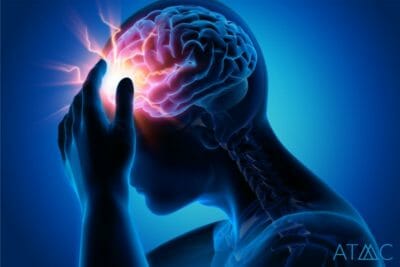Last Updated on September 13, 2022 by
Alternative to Meds Editorial Team
Medically Reviewed by Dr Samuel Lee MD
Table of Contents:
The terms “physical dependence” and “addiction” are ones that people use interchangeably. However, there are important distinctions between the two. What is the difference? How has the resulting stigma affected individuals and their families? What can we do to address it?
Physical Dependence vs Addiction, How Do They Compare?
Dependence and addiction are two separate terms, with two separate meanings. Though often intertwined, in the case of addiction, the differences are important to note. These differences can greatly impact any discussion about addiction and treatment.
In general, when we use the term dependence, we are referring to a state in which an individual has built up a physical tolerance to a substance. The substance is often some form of an illegal or prescription drug, but can also be another substance, such as a topical cream for dry skin. When the individual stops using the substance, he or she experiences symptoms of withdrawal. For example, in the case of a topical cream, the individual could experience advanced skin dryness.

As such, addiction is the state of simultaneous physical and mental dependence upon a given substance. The individual often feels an uncontrollable urge to sate the physical and mental feelings of dependence. However, some organizations have removed the term addiction from their literature, citing the fact that it is seen as too negative in comparison to the more medically friendly terms dependence or substance use disorder.
The Stigma of Addiction
This confusion of dependence vs addiction is just one sign among many that our society perpetuates a stigma against addiction. While not understanding the true nature of addiction and dependence, many people assume it is simply a sign that an individual is weak and lacks the will or the motivation to refrain from using a substance. Others may assume that people choose to become addicts or choose to remain addicts and enjoy the effects of their substance of choice.
As we’ve shown earlier in this article, this is simply not true. The urges the individual feels to participate in the addictive behavior are ever-present and can feel uncontrollable. In fact, the physical and mental dependence often leads the individual to continue participating in the addictive behavior, despite the effects it has on his or her health, financial well-being, and family.
Addiction is often quite expensive, putting the individual and family at risk for financial endangerment. The individual’s health often suffers as well, with severe physical and mental side effects impacting the quality of life. As a result, the relationship between the individual and the family often suffers, since the addiction becomes more important than the family.
How Stigma Impacts Treatment

Others in the community may react negatively to addiction. In fact, a survey conducted by a treatment center revealed that most people do not believe that addiction and dependence can happen to anyone; rather, 76% of respondents believed that addiction happened by choice. When the community notices the effects of addiction on the individual and the family, they may assume the individual wanted the situation to happen. This stigma provides a further barrier to treatment.
Finally, institutions can provide their own stigma and barriers to treatment. Often, privately run health insurance does not offer coverage for addiction treatment that has the potential to help individuals struggling with addiction. As a result, individuals experience a financial barrier to treatment that often seems insurmountable.
Similarly, strict government penalties for the possession of addictive substances often land addicted individuals in jail and facing stiff financial penalties. However, neither penalty addresses the source of the addiction itself, leaving individuals with no deterrent, no treatment, and at a financial disadvantage. In addition, these programs waste taxpayer money.
Dependence vs Addiction: How to End the Stigma

If you have a loved one suffering from addiction, it is important to allow them to talk about it, if they wish, and listen without judgment. Encourage treatment if asked, and do not present yourself as an expert on the subject. The inability to talk about addiction is one of the stigmas that prevents treatment. Showing a willingness to discuss it can help remove the stigma.
Finally, the public must address institutional stigmas and their barriers to treatment by persistently petitioning for change. Write to your senators and representatives and request a review of the laws that cause individuals dealing with addiction to underutilize treatment. Participate in community events that promote treatment for these individuals instead of resorting to jail time and fees.








